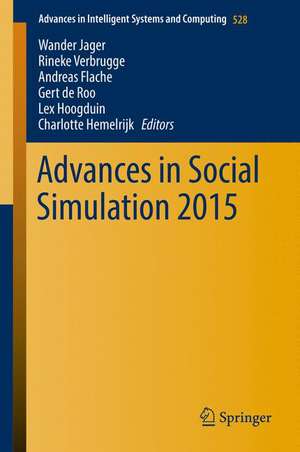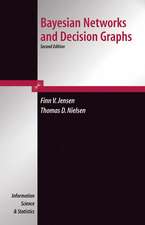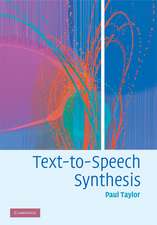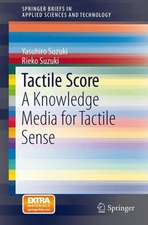Advances in Social Simulation 2015: Advances in Intelligent Systems and Computing, cartea 528
Editat de Wander Jager, Rineke Verbrugge, Andreas Flache, Gert de Roo, Lex Hoogduin, Charlotte Hemelrijken Limba Engleză Hardback – 17 mar 2017
This book highlights recent developments in the field, presented at the Social Simulation 2015 conference in Groningen, The Netherlands. It covers advances both in applications and methods of social simulation. Societal issues addressed range across complexities in economic systems, opinion dynamics and civil violence, changing mobility patterns, different land-use, transition in the energy system, food production and consumption, ecosystem management and historical processes. Methodological developments cover how to use empirical data in validating models in general, formalization of behavioral theory in agent behavior, construction of artificial populations for experimentation, replication of models, and agent-based models that can be run in a web browser.
Social simulation is a rapidly evolving field. Social scientists are increasingly interested in social simulation as a tool to tackle the complex non-linear dynamics of society. Furthermore, the software and hardware tools available for social simulation are becoming more and more powerful. This book is an important source for readers interested in the newest developments in the ways in which the simulation of social interaction contributes to our understanding and managing of complex social phenomena.
| Toate formatele și edițiile | Preț | Express |
|---|---|---|
| Paperback (1) | 1280.69 lei 6-8 săpt. | |
| Springer International Publishing – 21 iul 2018 | 1280.69 lei 6-8 săpt. | |
| Hardback (1) | 1287.12 lei 6-8 săpt. | |
| Springer International Publishing – 17 mar 2017 | 1287.12 lei 6-8 săpt. |
Din seria Advances in Intelligent Systems and Computing
- 20%
 Preț: 1120.87 lei
Preț: 1120.87 lei - 20%
 Preț: 1090.59 lei
Preț: 1090.59 lei - 20%
 Preț: 1324.07 lei
Preț: 1324.07 lei - 20%
 Preț: 1989.79 lei
Preț: 1989.79 lei - 20%
 Preț: 1946.92 lei
Preț: 1946.92 lei - 18%
 Preț: 1273.28 lei
Preț: 1273.28 lei - 20%
 Preț: 2264.51 lei
Preț: 2264.51 lei - 20%
 Preț: 1337.27 lei
Preț: 1337.27 lei - 20%
 Preț: 1297.67 lei
Preț: 1297.67 lei - 20%
 Preț: 1315.82 lei
Preț: 1315.82 lei - 20%
 Preț: 1310.88 lei
Preț: 1310.88 lei - 20%
 Preț: 1302.62 lei
Preț: 1302.62 lei - 20%
 Preț: 882.19 lei
Preț: 882.19 lei - 20%
 Preț: 1305.93 lei
Preț: 1305.93 lei - 20%
 Preț: 1629.32 lei
Preț: 1629.32 lei - 20%
 Preț: 1345.49 lei
Preț: 1345.49 lei - 18%
 Preț: 1227.52 lei
Preț: 1227.52 lei - 18%
 Preț: 1290.64 lei
Preț: 1290.64 lei - 20%
 Preț: 1041.10 lei
Preț: 1041.10 lei - 20%
 Preț: 1034.52 lei
Preț: 1034.52 lei - 20%
 Preț: 1298.50 lei
Preț: 1298.50 lei - 20%
 Preț: 1330.67 lei
Preț: 1330.67 lei - 20%
 Preț: 1483.28 lei
Preț: 1483.28 lei - 20%
 Preț: 1971.64 lei
Preț: 1971.64 lei - 20%
 Preț: 1006.48 lei
Preț: 1006.48 lei - 20%
 Preț: 1471.75 lei
Preț: 1471.75 lei - 20%
 Preț: 1471.56 lei
Preț: 1471.56 lei - 20%
 Preț: 1454.40 lei
Preț: 1454.40 lei - 20%
 Preț: 1494.84 lei
Preț: 1494.84 lei - 20%
 Preț: 1269.64 lei
Preț: 1269.64 lei - 20%
 Preț: 1481.64 lei
Preț: 1481.64 lei - 20%
 Preț: 1192.08 lei
Preț: 1192.08 lei - 20%
 Preț: 1298.50 lei
Preț: 1298.50 lei - 20%
 Preț: 1489.07 lei
Preț: 1489.07 lei - 20%
 Preț: 825.78 lei
Preț: 825.78 lei - 20%
 Preț: 1649.93 lei
Preț: 1649.93 lei - 20%
 Preț: 1463.49 lei
Preț: 1463.49 lei - 20%
 Preț: 1438.77 lei
Preț: 1438.77 lei - 20%
 Preț: 1474.22 lei
Preț: 1474.22 lei - 20%
 Preț: 1298.50 lei
Preț: 1298.50 lei - 20%
 Preț: 1327.35 lei
Preț: 1327.35 lei - 20%
 Preț: 1973.31 lei
Preț: 1973.31 lei - 18%
 Preț: 947.04 lei
Preț: 947.04 lei - 18%
 Preț: 1441.39 lei
Preț: 1441.39 lei - 20%
 Preț: 638.55 lei
Preț: 638.55 lei - 20%
 Preț: 1320.76 lei
Preț: 1320.76 lei - 20%
 Preț: 1948.56 lei
Preț: 1948.56 lei
Preț: 1287.12 lei
Preț vechi: 1608.90 lei
-20% Nou
Puncte Express: 1931
Preț estimativ în valută:
246.28€ • 257.14$ • 203.84£
246.28€ • 257.14$ • 203.84£
Carte tipărită la comandă
Livrare economică 05-19 aprilie
Preluare comenzi: 021 569.72.76
Specificații
ISBN-13: 9783319472522
ISBN-10: 3319472526
Pagini: 360
Ilustrații: XVIII, 460 p. 133 illus., 107 illus. in color.
Dimensiuni: 155 x 235 x 27 mm
Greutate: 0.84 kg
Ediția:1st ed. 2017
Editura: Springer International Publishing
Colecția Springer
Seria Advances in Intelligent Systems and Computing
Locul publicării:Cham, Switzerland
ISBN-10: 3319472526
Pagini: 360
Ilustrații: XVIII, 460 p. 133 illus., 107 illus. in color.
Dimensiuni: 155 x 235 x 27 mm
Greutate: 0.84 kg
Ediția:1st ed. 2017
Editura: Springer International Publishing
Colecția Springer
Seria Advances in Intelligent Systems and Computing
Locul publicării:Cham, Switzerland
Cuprins
From Field Data to Attitude Formation.- A Simple-to-use BDI architecture for Agent-based Modeling and Simulation.- Food Incident Interactive Training Tool: a serious game for food incident management.- A Cybernetic Model of Macroeconomic Disequilibrium.- How Should Agent-Based Modelling Engage With Historical Processes?.- Evolutionary Cooperation in a Multi-Agent Society.- Design of an empirical agent-based model to explore rural household food security within a developing country context.- Comparing Income Replacement Rate by Prefecture in Japanese Pension System.- Hybrid simulation approach for technological innovation policy making in developing countries.- Modelling Contextual Decision Making in Dilemma Games.- Preliminary results from an agent-based model of the daily commute in Aberdeen and Aberdeenshire, UK.- Agent-Based Modelling of Military Communications on the Roman Frontier.- The Leviathan model without gossips and vanity: the richness of influence based on perceived hierarchy.- A calibration to properly design a model integrating residential mobility and migration in a rural area.- Modeling Contagion of Behavior in Friendship Networks as Coordination Games.- A Model of Social and Economic Capital in Social Networks.- The Impact of Macro-Scale Determinants on Individual Residential Mobility Behaviour.- Modelling the energy transition: Application of Agent Based Modelling to Integrated Assessment Modelling.- A spatially explicit agent-based model of the diffusion of green electricity: Model setup and retrodictive validation.- A Network Analytic Approach to Investigating a Land-Use Change Agent-Based Model.- Network Influence Effects in Agent-Based Modelling of Civil Violence.- Modeling the evolution of ideological landscapes through opinion dynamics.- Changing Habits using Contextualized Decision Making.- SocialSIM – Real-life social simulation asa field for students´ research projects.- Simulating Thomas Kuhn‘s Scientific Revolutions: The Example of the Paradigm Change from System Dynamics to Agent Based Modelling.- Using ABM to clarify and refine social practice theory.- Transition to Low-carbon Economy:Simulating Nonlinearities in the Electricity Market, Navarre Region-Spain.- Statistical Verification of the Multiagent Model of Volatility Clustering on Financial Markets.- Social Amplification of Risk Framework: An Agent-Based Approach.- How precise are the specifications of a psychological theory? Comparing implementations of Lindenberg and Steg’s Goal-Framing Theory of everyday pro-environmental behaviour.- Lessons learned replicating the analysis of outputs from a social simulation of biodiversity incentivisation.- The Pursuit of Happiness: A Model of Group Formation.- Understanding and Predicting Compliance with Safety Regulations at an Airline Ground Service Organization.- Opinions on Contested Infrastructures over Time: A Longitudinal, Empirically-Based Simulation.- Road repair sequencing for disaster victim evacuation.- Using empirical data for designing, calibrating and validating simulation models.- A methodology for simulating synthetic populations for the analysis of socio-technical infrastructures.- Modelling the Individual Process of Career Choice.- Modelling the role of social media at street protests.- AgentBase: Agent Based Modelling in the Browser.
Notă biografică
The editors are collaborators at the Groningen Center for Social Complexity Studies (GCSCS) and organised the Social Simulation Conference 2015 in Groningen, The Netherlands. The GCSCS serves as a platform connecting researchers at or affiliated with the University of Groningen working in the field of social complexity. The aim of the GCSCS is to provide high quality research and education, interacting actively with business, government and the public, and in particular to address the goal of stimulating cross-border research and education.
Textul de pe ultima copertă
This book highlights recent developments in the field, presented at the Social Simulation 2015 conference in Groningen, The Netherlands. It covers advances both in applications and methods of social simulation. Societal issues addressed range across complexities in economic systems, opinion dynamics and civil violence, changing mobility patterns, different land-use, transition in the energy system, food production and consumption, ecosystem management and historical processes. Methodological developments cover how to use empirical data in validating models in general, formalization of behavioral theory in agent behavior, construction of artificial populations for experimentation, replication of models, and agent-based models that can be run in a web browser.
Caracteristici
Includes supplementary material: sn.pub/extras














